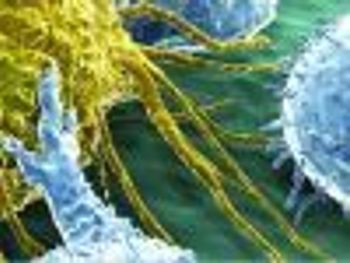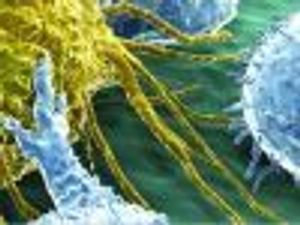
Bipartisan support exists for a repeal of the medical device tax, but only if it doesn't impede implementation of the Affordable Care Act.

Bipartisan support exists for a repeal of the medical device tax, but only if it doesn't impede implementation of the Affordable Care Act.

Finding a way to promote longevity without promoting harmful side effects is a key goal of longevity proponents and researchers, but new work on aging in mice points to the challenge ahead.

In 2012, an estimated $213 billion in health care spending in the United States was wasted on improper and unnecessary use of medicines. Those avoidable costs could have paid to insure 24 million Americans.

A team of researchers has discovered what could become a new and more effective kind of antibiotic that disrupts protein synthesis in bacteria and makes them unable to replicate.

A study analyzing the relationship between major complications and hospital costs and profits revealed that surgical complications can yield hospital profits of as much as 330% while improving quality is perversely penalized.

Despite steps made by the top private health plans in the U.S., a nationwide survey indicates little progress has been made in promoting value-based care during the last two years.

Indiana University researchers have created an artificial intelligence system able to improve patient health care while at the same time reducing costs.

A record $4.2 billion in health care fraud judgements and settlements was returned to federal programs in 2012. The majority of detected fraud relates to health care services delivery and billing; however, the pharmaceutical industry also contributed.

The number of cancer cases continues to drop for most American men and women, according to an annual update of cancer incidence, mortality, and trends in the United States.

After almost 40 years of talks, European Union leaders agreed to cut patent fees by 80%, making the EU more competitive with the United States and Japan in attracting inventors.

The U.K.'s National Health Service will map the DNA of up to 100,000 patients with cancer and other rare diseases in hopes of accelerating diagnosis, improving treatment and sparking innovation.

The FDA's legal standing to mandate reviews and inspect compounding pharmacies has not always been clear-cut. After the meningitis outbreak stemming from a Massachusetts compounding pharmacy, the FDA commissioner is arguing for expanded authority.

Published: June 24th 2013 | Updated:

Published: December 18th 2012 | Updated:

Published: February 20th 2013 | Updated:

Published: April 22nd 2013 | Updated:

Published: November 16th 2012 | Updated:

Published: September 4th 2013 | Updated: